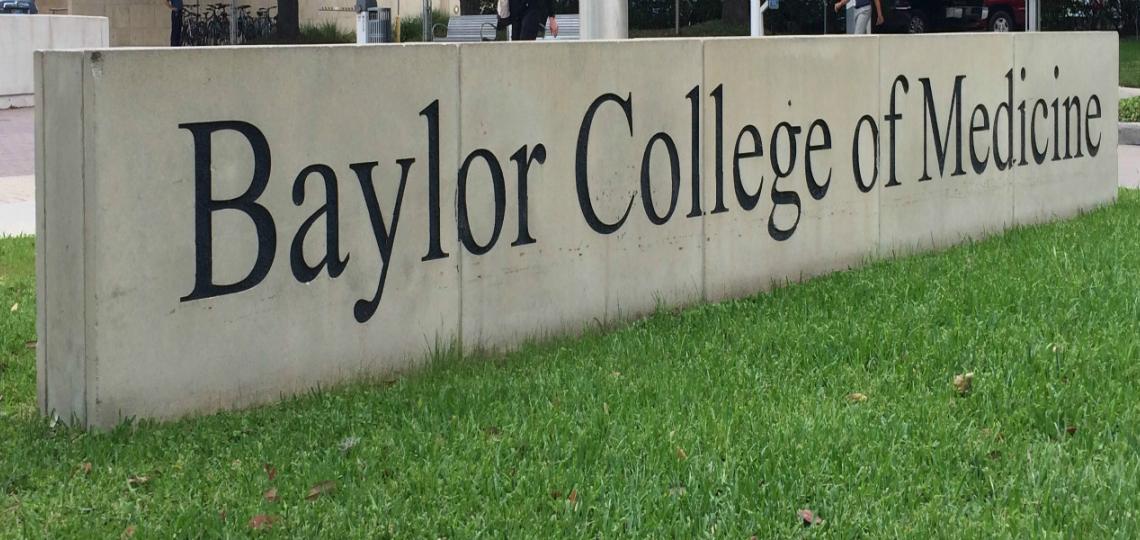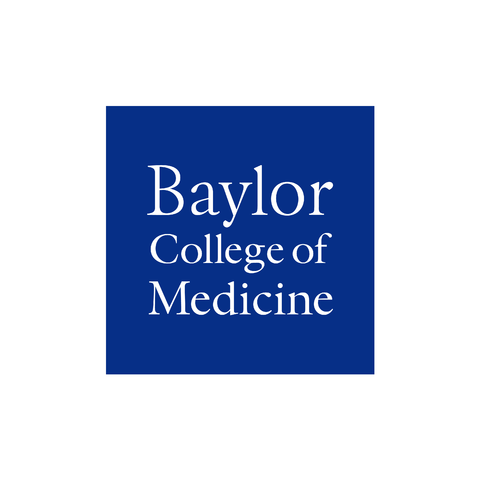Flexibility to Meet Your Goals
Enrolling in the Baylor College of Medicine Graduate School of Biomedical Sciences opens doors to educational opportunities both within the College and with other outstanding institutions. We encourage students to customize their training to fit their individual career goals. You may choose to gain teaching experience, complete internships, work with young students, take courses at other institutions or take advantage of other opportunities at the College.
"The faculty really cares about me growing and having everything I need as a student in order to succeed in my future career. This is true for technical skills, knowledge, and the soft skills that are in such high demand in any science field. They ask, "What do you want out of your education," and then respond with initiatives that provide what we need. I have no doubt that I will go into my career with everything that I need to succeed."

Cross-Cutting Curriculum
While it remains critical for Ph.D. students to gain deep knowledge of their specific field of specialization, this is no longer sufficient. Today’s research requires that scientists expand their knowledge base and skill sets. To meet this challenge, Baylor annually reviews curriculum needs across all programs and the Graduate School as a whole. Students will gain knowledge skills in a variety of areas including human subjects research, ethics, rigor, leadership, mentoring, time management, teamwork and more.
We have crafted our graduate programs to reflect Baylor's focus on interdisciplinary, collaborative research. We continually evaluate all aspects of the curriculum to enhance our ability to help you develop both core competencies and deep expertise in modern biomedical science. We also have developed innovative curriculum approaches to ensure you master the critical thinking, communications, teamwork and professional skills necessary to succeed within all the potential career paths open to individuals with a Ph.D. in biomedical sciences. Working with the leadership of your program and your mentor, you will have the flexibility to personalize your training to align with your career goals.
Year One Courses: The Baylor Difference
Our three-tiered curriculum is designed to ensure that all students have the strong foundational knowledge and quantitative skills essential for all biomedical scientists while providing the opportunity to dive deep into their chosen field of research.
Foundational Curriculum
The first tier of our Ph.D. program is our foundational curriculum. During the first two terms of the year, students in most programs participate in a rigorous pair of Foundations courses that provide a breadth of knowledge across the biological sciences, including cellular biology, genetics, macromolecules, proteostasis, tissues, development and biostatistics. Additionally, all students participate in a four-course series in the Responsible Conduct of Research throughout their first four years in the program. These courses are a combination of the required National Institutes of Health training in areas of authorship, research ethics regarding humans and animals, rigor, reproducibility and collaboration, as well as additional workshops on important professional and personal development topics.
Programmatic Core
Beyond the Foundations, each of our Ph.D. programs has a core of required courses to provide students with an in-depth understanding of their field, including theory, practical aspects and methodologies, as well as exposing students to vital skills in critical thinking, evaluating contemporary research literature, presentation skills, grant writing and collaboration. Additionally, students regularly attend lecture series by Baylor faculty and researchers, visiting experts and their fellow students.
Student-Choice Electives
The third tier of our cross-cutting curriculum allows students to select elective coursework that supports their interests in their specific area of research. Students may select from dozens of elective options offered by our graduate programs, as well as interdisciplinary courses offered by the Graduate School in our central curriculum.
Responsible Conduct of Research
All students participate in a four-course series in the Responsible Conduct of Research throughout their first four years in the program. The required training complies with the current recommendations of the National Institutes of Health for instruction in the responsible conduct of research including in areas of authorship, research ethics regarding humans and animals, rigor, reproducibility and collaboration, as well as additional workshops on important professional and personal development topics. Upon completion of the requirements, a certificate of attendance will be issued.
Graduate School Bulletin
The Graduate School Bulletin is published on July 1 preceding each academic year. It provides students with a comprehensive document showing the academic calendar, the schedule of classes for the year, catalog descriptions of courses, key academic policies and important contact information. The Graduate School Bulletin is updated during the year with any changes to the schedule of classes, so users are encouraged to access the current document online, rather than downloading it.
Research Rotations
During the first year, students also complete laboratory rotations. One of the great things about pursuing a Ph.D. is that you choose to explore an area of research that really interests you. Rotations offer students the opportunity to explore multiple areas of research and get to know the faculty members who ultimately will guide and support them as mentors. Students complete a minimum of three required rotations, with most students spending time in four or five laboratories before selecting their mentor.
Students have the option to complete rotations with any graduate school faculty member. If upon completion of rotations, a student selects a thesis advisor who is not a faculty member within their program, the student may request approval from their program leadership for this person to be their mentor.
Year Two
In year two students continue with coursework focused on building the knowledge and skills required for their area of focus. Students will work with their program leadership and thesis mentor to identify which courses are needed to round out their didactic education. Students will complete the Qualifying Exam, which requires them to prepare and defend their research proposal. Working with their mentors, students develop their thesis project, assemble a Thesis Advisory Committee and begin conducting dissertation research.
Individual Development Plans
After successful completion of the Qualifying Exam, students begin their Individual Development Plan (IDP). The IDP enables students to identify professional goals that match their interests and values for the purpose of identifying and developing the appropriate career-specific skills. The creation and regular review of the IDP encourages discussions between students and mentors about career goals early in the training process and implements a course of action to achieve these goals. The three interactive steps and the proposed timeline for completion of the IDP are described in “The Baylor College of Medicine IDP Process.”
Year Three to Graduation
The average time to degree for Baylor graduate students is six years. In years three through graduation and beyond, students will conduct dissertation research while meeting regularly with their mentor and Thesis Advisory Committee for guidance and assistance in monitoring progress. Students also attend seminars and conferences at the College as well as at other institutions of the Texas Medical Center and national and international meetings.
The final goal is a dissertation describing the results of original research. Most students have multiple publications that constitute the core of their dissertation. These papers frequently are published in high-quality, peer-reviewed journals. The dissertation defense involves a public seminar and oral defense to the Thesis Advisory Committee
Degree Requirements
The degree plan document is provided as a guide for students to assist in course registration. It includes a list of required & elective courses and typical plan of study. The degree plan is not considered a comprehensive list of graduation requirements, but a tool for ensuring completion of all required coursework. Additional graduation requirements beyond required coursework are provided in each graduate program’s student handbook.
Career Development Center
The Baylor College of Medicine Career Development Center provides the training, resources and connections you need to achieve your professional goals.
Team Launch
Team Launch provides innovative, interdisciplinary learning opportunities that will prepare students for careers in team-based science.
Student Voices
Hear directly from our students how our collaborative and innovative research environment is helping them to prepare to shape the future of biomedical research.








 Credit
Credit


